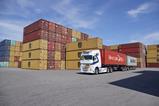The UK government has stated its business department will be divided into science, business, and energy ministries. After a seven-year absence, the new Agency for Energy Security and Net Zero symbolises the return of an energy and climate-focused department.
Grant Shapps, the new Secretary of State for Energy Security and Net-Zero, is in charge of the new Department. The Prime Minister appointed Shapps as BEIS Secretary immediately after the Prime Minister’s inauguration last October. Shapps, an MP since 2015, formerly held Ministerial positions at the Department for International Development and, more recently, the Department for Transport (DfT).

Shapps has aided in the development of climate policy through ministerial positions in the Departments of International Development and Transport (DfT). Under his lead The Transport Decarbonisation Plan was produced by the DfT. Although it has been delayed owing to Covid-19, it appears to fulfil the Department’s intention to detail how all means of transportation will correspond with the UK’s net-zero aim of 2050.
When then-prime minister Theresa May abolished the Department of Energy and Climate Change (DECC) in 2016 to form the Department for Business, Energy, and Industrial Strategy (BEIS), it was generally seen as an indication that climate change was being downplayed.
“This year, the department will focus on easing the cost of living and delivering financial security by bringing down energy bills and keeping them down - better insulating consumers from external impacts,” according to a brief description of the new department. Longer-term goals include ensuring that energy markets work effectively, coordinating net zero goals throughout government, and bringing external delivery skills to bear on its portfolio of significant projects.”
It is thought that a smaller department with net zero in the title will bring the matter to the attention of Whitehall. It also implies a secretary of state who can focus on climate change and make arguments in cabinet without being distracted by other problems such as business.
As net zero fleets increase, this new department will presumably help in the simpler adoption of net zero energy solutions, as well as the wider decarbonisation of transportation through stable pricing and availability for hauliers.


















